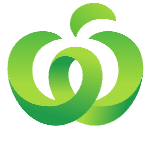by Ashleigh Feltham Accredited Practising Dietitian and Accredited Nutritionist

Optimise Your Child’s IQ with Essential Fatty Acids
Wanting the best for your child is a natural desire as a parent. Diet can determine the health of your child in the future, particularly in the first one thousand days of their life from conception. One nutrient of particular importance is an omega-3 fat called docosahexaenoic acid (DHA).
DHA is an omega-3 fat found alongside eicosapentaenoic acid. This combination of omega-3 fats is found in seafood and is particularly high in sources of fatty fish like salmon, sardines, herring, mackerel and anchovies. Omega-3 fats are polyunsaturated and are called essential because your body cannot produce them; they must come from the food you eat.
DHA is of vital importance to the function of your brain. It impacts how your brain sends messages and how it functions. DHA forms part of your neural tissues or the main tissue of your nervous system. This omega-3 fat has the greatest role in the development of the brain in the final trimester of pregnancy.
A recent study investigated the effects of DHA supplementation on infants born before 29 weeks gestation. The study was conducted on 1,273 randomly assigned infants. They received a 60mg supplement of DHA per kilogram of body weight per day or a control without DHA. The supplement was given in the form of enteral feeding (via a tube) until 36 weeks or until the infant was discharged from hospital. The general intelligence at five years was assessed.
Researchers concluded that infants who received the DHA supplementation had a modestly higher full-scale intelligence quotient (FSIQ) score at five years of age. This research adds to the literature available on the importance of DHA in the development and function of the brain.
For women during pregnancy, including enough sources of omega-3 fat, is an essential component for the healthy development of your child. Including seafood two to three times a week is recommended, with one serve being 100g of cooked-weight seafood. Select canned seafood to reduce your risk of listeria infection.
In addition, choose seafood that reduces exposure to mercury. This toxin can accumulate in high quantities in bottom-feeding fish like swordfish. Safe choices for pregnant women include sardines, salmon, and tinned tuna.
If you are concerned about the impact your seafood choices have on the environment, choose canned seafood with Marine Stewardship Council (MSC) certification. This indicates the use of sustainable fishing methods for wild-caught salmon.
Choose to add seafood to your pregnancy diet rather than taking a single supplement. Nutrients are best absorbed through food. In so doing, you will provide your growing child, as well as yourself, with a matrix of other nutrients, such as choline, zinc, magnesium, and vitamins B6 and B12, just to list a few.
Optimise Your Child’s IQ with Essential Fatty Acids by choosing to add seafood

Take home message
While there are many factors and diet choices that may impact the future health of your child, DHA is one nutrient of particular importance. From this research, including enough of this essential fatty acid throughout pregnancy, especially during the final trimester, may optimise your child’s future IQ.

References:
- Jacqueline F. Gould, Ph.D., Maria Makrides, Ph.D., Robert A. Gibson, Ph.D., Thomas R. Sullivan, Ph.D., Andrew J. McPhee, M.B., B.S., Peter J. Anderson, Ph.D., Karen P. Best, Ph.D., Mary Sharp, M.B., B.S., Jeanie L.Y. Cheong, M.D., Gillian F. Opie, M.B., B.S., Javeed Travadi, D.M., Jana M. Bednarz, G.Dip., et al. Neonatal Docosahexaenoic Acid in Preterm Infants and Intelligence at 5 Years. October 27 2022.
- Weiser MJ, Butt CM, Mohajeri MH. Docosahexaenoic Acid and Cognition throughout the Lifespan. Nutrients. 2016 Feb 17;8(2):99. doi: 10.3390/nu8020099. PMID: 26901223; PMCID: PMC4772061.
- Kuratko CN, Barrett EC, Nelson EB, Salem N Jr. The relationship of docosahexaenoic acid (DHA) with learning and behavior in healthy children: a review. Nutrients. 2013 Jul 19;5(7):2777-810. doi: 10.3390/nu5072777. PMID: 23877090; PMCID: PMC3738999.
- Sarah Cusick, PhD and Michael K. Georgieff, MD. The first 1,000 days of life: The brain’s window of opportunity. Unicef. 12 April 2013.














Comments are closed.